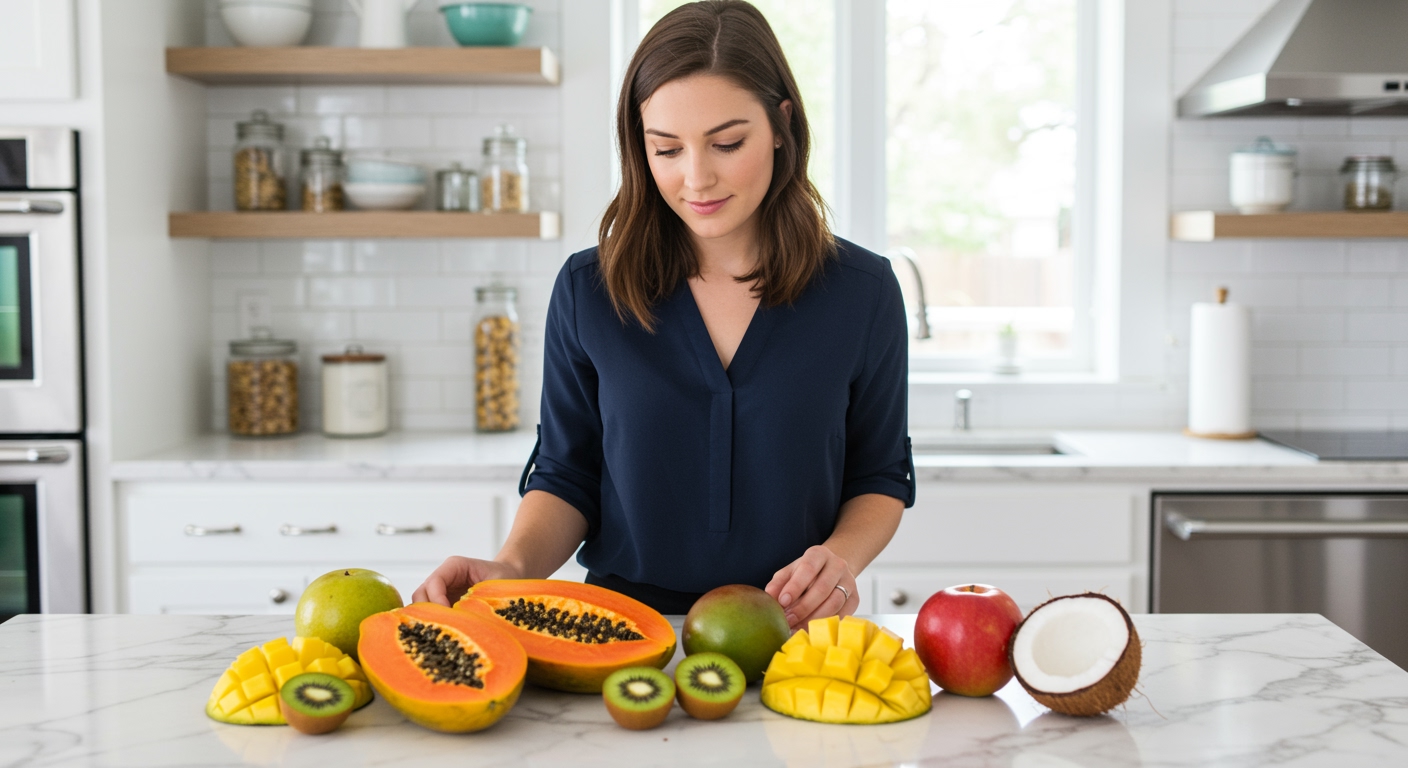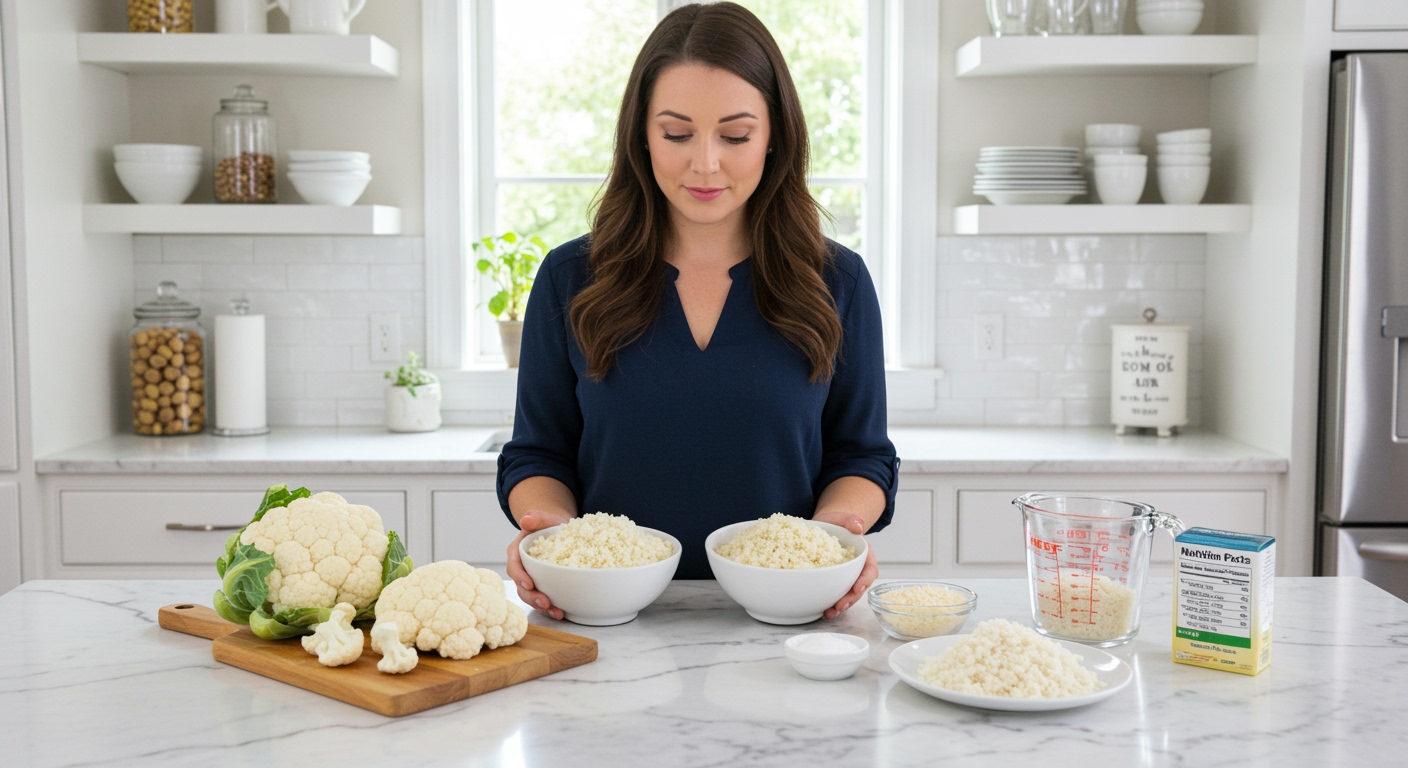✪ Key Takeaway: Women with PCOS can enjoy most tropical fruits in moderation, focusing on lower glycemic options and proper portion control.
Introduction
Your doctor just diagnosed you with PCOS and suddenly every fruit seems like the enemy.
You love mangoes, pineapples, and papayas but now you wonder if these tropical delights will make your symptoms worse.
Hi, I’m Abdur, your nutrition coach and today I’m going to explain exactly which tropical fruits you can enjoy with PCOS and which ones need careful consideration.
Why Do People Think Tropical Fruits Are Bad for PCOS?
The fear around tropical fruits comes from their natural sugar content and higher glycemic index compared to berries.
Many women with PCOS have insulin resistance, which means their bodies struggle to process sugar efficiently.
When blood sugar spikes quickly, it triggers more insulin release from your pancreas.
This excess insulin can worsen PCOS symptoms by increasing androgen production in your ovaries.
Higher insulin levels also promote weight gain around your midsection, making it harder to lose weight.
However, completely avoiding all tropical fruits might rob you of important nutrients your body needs.
✪ Fact: Insulin resistance affects up to 70% of women with PCOS, making blood sugar management crucial for symptom control.
Which Tropical Fruits Are Actually PCOS-Friendly?
Papaya stands out as one of the best tropical fruits for women with PCOS.
It has a moderate glycemic index of 60 and contains powerful anti-inflammatory compounds like lycopene and beta-carotene.
The enzyme papain in papaya helps improve digestion and may reduce bloating that many PCOS women experience.
Kiwi fruit is another excellent choice with a low glycemic index of 39 and high fiber content.
One medium kiwi provides more vitamin C than an orange and helps slow down sugar absorption.
Guava deserves special mention for its exceptional antioxidant profile and relatively low sugar content compared to other tropical fruits.
Even pineapple can fit into a PCOS diet when eaten in small portions with protein or healthy fats.
✪ Pro Tip: Eat tropical fruits with a handful of nuts or seeds to slow sugar absorption and prevent blood sugar spikes.
What About Mangoes and Other High-Sugar Tropical Fruits?
Mangoes have a higher glycemic index around 51-60, but they are not completely off-limits for PCOS women.
The key lies in portion control and timing your mango consumption strategically.
A small slice of mango after a protein-rich meal will have less impact on your blood sugar than eating it alone.
Mangoes contain mangiferin, a compound that may help improve insulin sensitivity over time.
Fresh coconut meat is surprisingly PCOS-friendly due to its high healthy fat content and minimal sugar.
However, avoid coconut water if you have severe insulin resistance as it contains natural sugars without the fiber buffer.
Dragon fruit offers the visual appeal of tropical fruit with a lower glycemic impact than most alternatives.
✪ Note: Dried tropical fruits concentrate sugars and should be avoided or consumed in tiny amounts only.
How Should You Include Tropical Fruits in Your PCOS Diet?
Start by monitoring your blood sugar response to different tropical fruits using a glucose meter.
Test your blood sugar before eating the fruit and again 1-2 hours after to see how your body responds.
Limit tropical fruit portions to half a cup or one small piece at a time.
Always pair tropical fruits with protein sources like Greek yogurt, nuts, or seeds.
The best time to eat tropical fruits is after a workout when your muscles can quickly use the natural sugars for recovery.
Choose fresh over processed forms and avoid fruit juices which remove beneficial fiber.
Focus on variety rather than quantity to get different nutrients and antioxidants without overloading on any single fruit.
✪ Pro Tip: Freeze tropical fruit pieces and blend them with protein powder for a PCOS-friendly smoothie that satisfies sweet cravings.
The Bottom Line
You do not need to completely avoid tropical fruits if you have PCOS, but smart choices and portion control are essential.
Health is not about perfection, it is about making better choices consistently and tropical fruits can be part of a balanced PCOS management plan.
I would love to hear about your experiences with tropical fruits and PCOS – please share your questions or feedback in the comments below.
References
At NutritionCrown, we use quality and credible sources to ensure our content is accurate and trustworthy. Below are the sources referenced in writing this article:
- Medical News Today: PCOS diet: Foods to eat and avoid
- Exotic Fruits: 10 Best Fruits for PCOS: Boosting Hormone Health with Diet
- Zita West: 12 Fruits That Are Good for PCOS
- PCOS Weight Loss: Fruits That Are Good for PCOS





